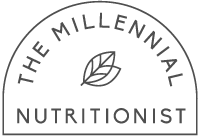What is Seamoss? Health Benefits, Hypothyroidism, and How to Eat it | Dietitian Review
By: Courtney McMahan BS, RD
What is sea moss?
Sea moss is a type of seaweed that has been popularized for its nutrient density and its potential health benefits. You might have seen this supplement lining the shelves in the “superfood” aisle of your local health store.
What are the benefits?
Sea moss contains a host of nutrients, such as vitamins A, C, and E, as well as some B vitamins. Getting enough of these nutrients every day will increase energy levels, boost immunity, brighten skin, and support the body’s natural detoxification pathways. Minerals, like magnesium and potassium, found in sea moss help with blood pressure regulation and support overall heart health.
It also contains iodine, which is needed for proper thyroid function. Because the thyroid releases hormones that regulate mood, metabolism, and weight, getting enough iodine could lead to improvement in these areas.
Sea moss is also rich in antioxidants, which means it may lower inflammation and chronic disease risk.
Additionally, sea moss contains prebiotics which feed your healthy gut bacteria. This means it could provide some benefit for digestion and immunity.
Are there any downsides?
With such a long list of benefits, it would seem that sea moss is a great addition to anyone’s diet, right?
Not necessarily. There are a few downsides you should be aware of before you make this seaweed supplement a part of your daily routine.
For starters, there could be wide variation in the amount of nutrients contained in one batch of sea moss and the next. These variations are caused by factors like the mineral content of the water it’s grown in and the region it's harvested from. That means even if you are purchasing the same brand, one batch could have significantly less vitamins, minerals and antioxidants than another.
Another risk is that you could potentially consume too much iodine if you eat a lot of sea moss. Though iodine is required for proper thyroid function, an excess of it can be detrimental to your thyroid.
Sea moss is also likely to contain heavy metals like mercury or lead. Due to ocean pollution, heavy metals like lead and mercury can build up in marine life, including seaweed. This is another reason you shouldn’t eat an excessive amount of sea moss. As with all supplements, you should ensure the brand you purchase is third party tested for purity; this will ensure you aren’t being exposed to large amounts of heavy metals.
One last downside to sea moss is that it tastes extremely fishy and has a slimy texture, so unless you are mixing it into a recipe or taking it in capsule form, taking it likely won’t be a pleasant experience.
How to add sea moss to your diet
If you decide to give this one a try, sea moss supplements are sold in a few different forms. The powdered form is the most common. It can be blended into a smoothie or (if you are brave enough) dissolved in plain water. It can also be added as a thickener to soups.
If you can’t stand the taste of it, the capsule form may be a good option.
Conclusion
In conclusion, sea moss is a rich source of vitamins, minerals and antioxidants. This means it can be a good way to get in a lot of nutrients at once. However, due to wide variation in the amount of these nutrients, you shouldn’t rely on sea moss to be the sole source of any of these nutrients. If you decide to add it, it should be in addition to a healthy diet that contains a large array of whole foods.
Additionally, if you do elect to include this supplement, you should stick to no more than a single serving per day to avoid the risk of heavy metal toxicity or getting an over abundance of iodine.


